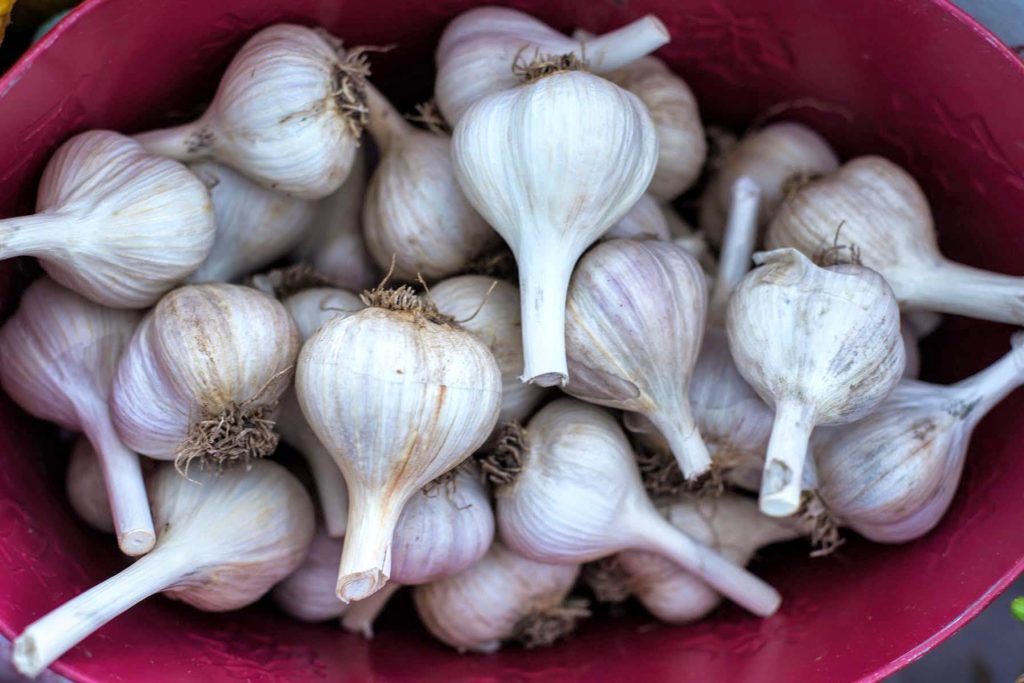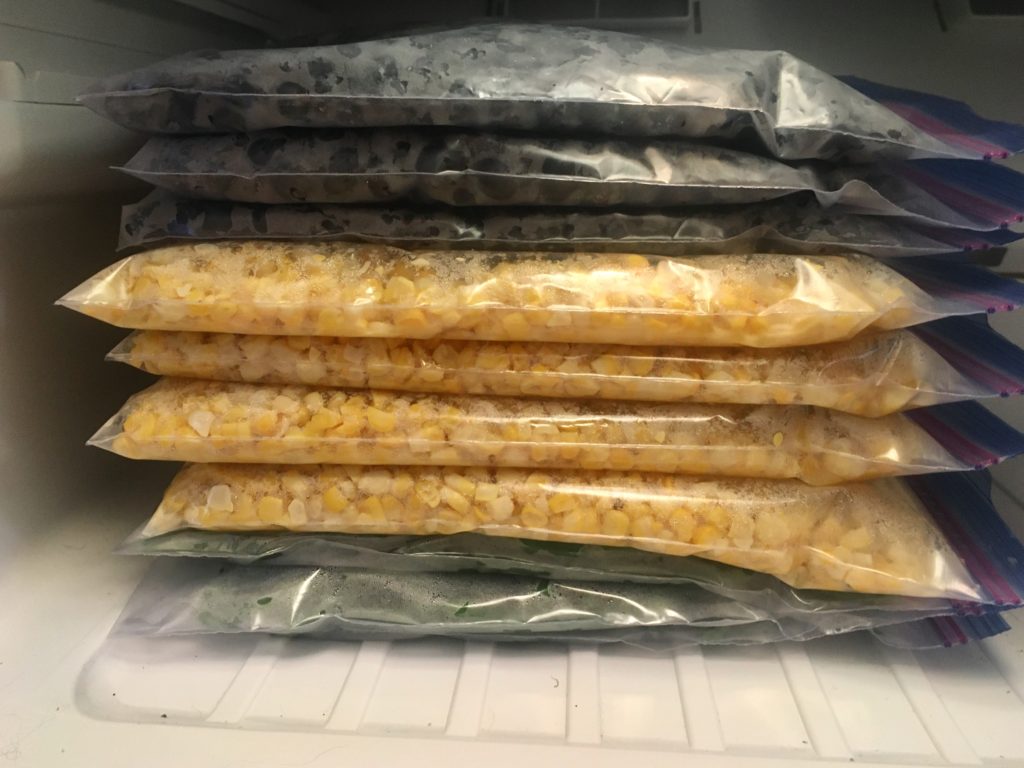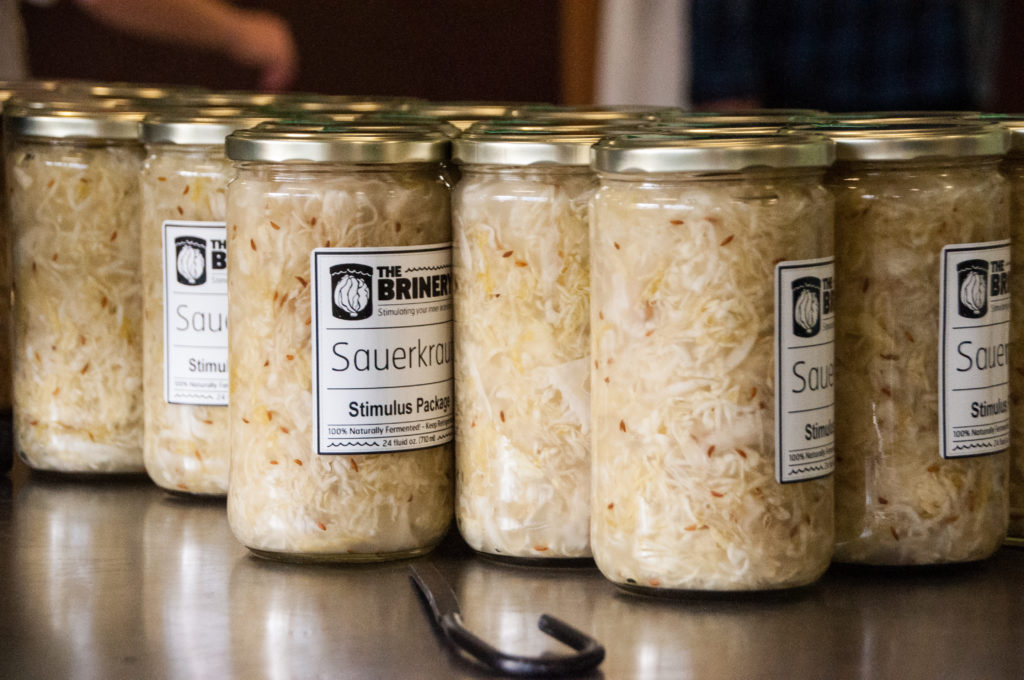
In October, many of Michigan’s farmers markets will close for the season, but that doesn’t mean you have to stop eating locally. With some planning (and canning!), you can keep your kitchen stocked with local food throughout the coldest months.
Here are some tips for eating healthfully and locally this winter:
Ask about bulk buying
Many farmers will dig up the last of their hot crops to make room for cold crops and row cover this month. Green tomatoes and fresh herbs can be processed for storage and tend to be available in large quantities this time of year.
If you have the space, invest in storage crops. Potatoes, winter squash, root vegetables, onions, and garlic all store well without processing. Their peels serve as a natural wrapper, helping to preserve them long after harvest. Create a makeshift root cellar, then stock up, store, and enjoy throughout the season!
Try canning, pickling, and fermenting
Whether you purchase by the pint or the peck, you can extend the life of summer produce with canning, pickling, and fermenting. There’s no better cure for the January doldrums than opening a jar of sweet summer fruit or zesty pepper relish. MSU Extension offers in-depth guides to water bath, steam, and pressure canning to help you safely stock your larder.
If you’re new to food preservation, try mixing up a batch of quick pickles or sauerkraut. Both start with beginner-friendly recipes (simple ratios of vegetables to salt and/or brine) that are endlessly adaptable.

Befriend your freezer
Pack your freezer with fruits and vegetables to avoid trips to the market when the roads are treacherous. The more prep you do now, the easier produce will be to use when you pull it from the freezer. Detroit chef and cookbook author, Angela Davis of The Kitchenista Diaries, published a guide to freezing with tips for preserving the flavor and texture of fresh fruits and vegetables.
Join a CSA or visit your Local-Focused Retailer
Many Michigan farms continue working year round, stocking onsite markets and filling CSA boxes. Bluestem Farm’s Winter Farm Subscription runs December through February. Dancing Meadows Homestead offers a Holiday Season Basket and Keep Growing Detroit curates a Thanksgiving CSA. Tantre Farm continues its Immune Booster CSA through the cold season, and Green Things Farm Collective’s Winter Spinach Club will keep you eating fresh greens even after the snow starts to fall. Northwest Michigan’s MI Farm Co-op operates its multi-farm CSA all year long, supplementing winter shares with value-added products, like cheese and honey.
Additionally, many co-ops and farm stops dedicate themselves to providing a local option to their communities. We are fortunate to have a growing number of options in Michigan. Here are just a few across our great state:
- Keweenaw Co-op, Hancock
- Lakeshore Depot, Marquette
- Oryana Community Co-op, Traverse City
- Grain Train Co-op, Petoskey and Boyne City
- GreenTree Cooperative, Mt. Pleasant
- South East Market, Grand Rapids
- Argus Farm Stop, Ann Arbor
- Ypsilanti Food Co-op, Ypsilanti
- Acorn Farmers Market, Manchester
Plus, many communities are actively organizing to form new co-ops, such as the Detroit People’s Co-op and the Grand Rapids Co–op.

Turn to the pros
If kitchen projects aren’t your thing, but you still want to eat well this winter, you’re in luck. Michigan is full of small food businesses whose products feature the best local produce. A few of our favorite examples:
- Rozie’s RelSa blends garden vegetables, herbs, and spices into a gourmet mash-up of relish and salsa.
- Michigan Farm to Freezer flash-freezes fruits and vegetables from farmers across the state, capturing peak freshness in ready-to-use 2-pound bags.
- The fermentation experts at The Brinery offer a tangy lineup of sauerkrauts, kimchi, and hot sauce, perfect for brightening up heavy winter meals.
Visit Taste the Local Difference’s Food and Farm Directory to see what’s available in your area this winter, and check out the TLD cookbook, Tastes, for delicious recipes that highlight the best of the season.
Deana Wojcik is a Content Strategist for Taste the Local Difference.
